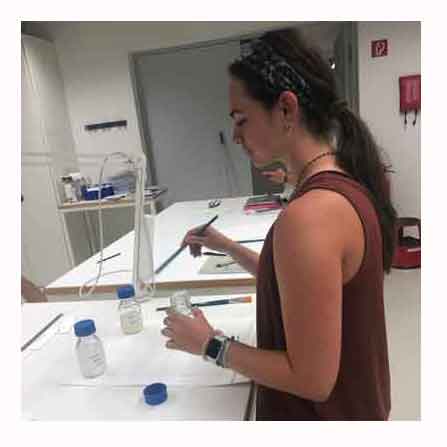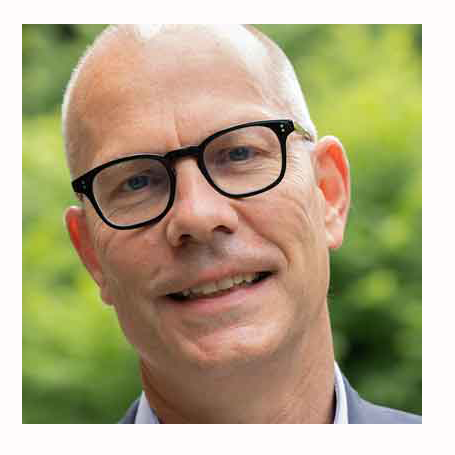Published on 15.12.2022
Innosuisse grants are for ALL disciplines
The newest project of AMI Professor Chris Weder aims at preserving historical documents damaged by ink corrosion. Chris Weder is Professor of Polymer Chemistry and Materials at the Adolphe Merkle Institute (AMI) of the University of Fribourg.  Together with the Institut Materialität in Kunst und Kultur at the HKB and four implementation partners — Staatsarchiv Zürich, Atelier Michael Rothe GmbH, Atelier Raymann Buchrestaurierung, and Zentralbibliothek Zürich —he has been awarded an Innosuisse grant for the project “Novel method for the conservation of historical documents damaged by ink corrosion through chemical deacidification and mechanical stabilization”. Iron gall ink was used over a period of 2000 years for handwritten records and was the most widely used writing medium worldwide. Unfortunately, the ink and its degradation products lead over time to the corrosion of the paper and parchment of historical documents, thereby jeopardising our understanding of the past.
Together with the Institut Materialität in Kunst und Kultur at the HKB and four implementation partners — Staatsarchiv Zürich, Atelier Michael Rothe GmbH, Atelier Raymann Buchrestaurierung, and Zentralbibliothek Zürich —he has been awarded an Innosuisse grant for the project “Novel method for the conservation of historical documents damaged by ink corrosion through chemical deacidification and mechanical stabilization”. Iron gall ink was used over a period of 2000 years for handwritten records and was the most widely used writing medium worldwide. Unfortunately, the ink and its degradation products lead over time to the corrosion of the paper and parchment of historical documents, thereby jeopardising our understanding of the past.
Current treatment methods can be effective, but tend to be invasive and time-consuming.  Professor Weder and his project partners have thus joined forces to develop a more efficient restoration method. The team seeks to develop an emulsion of different nanoparticles that can be easily applied to damaged objects, deacidifies the paper, and mechanically reinforces the substrate.
Professor Weder and his project partners have thus joined forces to develop a more efficient restoration method. The team seeks to develop an emulsion of different nanoparticles that can be easily applied to damaged objects, deacidifies the paper, and mechanically reinforces the substrate.
The enterprise they are embarking upon shall benefit society at large, since part of the cultural heritage and history recorded in documents written with iron gall ink will, thanks to it, be preserved for posterity.
See here for more on Professor Chris Weder and his research.
About Innosuisse: Innosuisse promotes science-based innovation in the interest of the economy and society in Switzerland – and this across all disciplines.
The innovation projects are divided into two main categories: Innovation Projects with Implementation Partner as that of Professor Weder (e.g. industry partners, SMEs, NGOs, administration), and Innovation projects without Implementation Partner.
A good proposal for an innovation project is specific (there is an existing market interest for the proposed product or service, which has been well defined, and access to the market has been adequately described), clear (the proposal’s innovative content is clearly indicated, the project plan is understandable, tasks are clearly defined and meaningful, milestones are reasonably set, and goals are described quantitatively), as well as being consistent (the research and implementation partners work together, the project planning and financial planning are consistent, and the timetable and resource allocation are realistic).
Applications can be submitted to Innosuisse at any time. The evaluation process takes an average of eight weeks (the upcoming dates at which the evaluation committee meets are available here).
Read more about Innosuisse grants and other Innosuisse support, such as Innobooster and Flagships projects (deadline 31 January 2023 before noon) here.
For more information on Innosuisse applications, to get support for patenting, or on BRIDGE applications, please contact the Knowledge and Technology Transfer service (KTT) at techtransfer@unifr.ch.
A big thank you to Chris Rader for his invaluable help on this project.